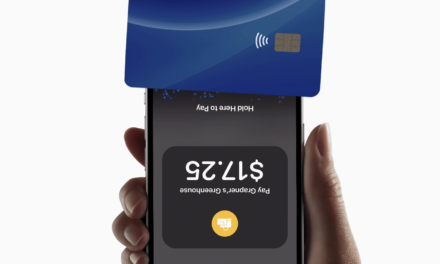We’ve all been there. A couple enquires about your celebrant services. You exchange emails, maybe have a phone call or even meet for coffee. The connection seems genuine, the conversation flows, and you’re mentally slotting them into your calendar. Then comes the message: “Thank you for your time, but we’ve decided to go with someone else.”
The sting of rejection hits. Your inner critic awakens, whispering about your inadequacies as a celebrant, your pricing structure, or perhaps your personality.
But what if I told you that rejection isn’t the end of a conversation–it’s the beginning of valuable market research?
Rejection isn’t a verdict; it’s data. Use it.
Reframing Rejection
In business, we tend to view rejection as a full stop. A dead end. A sign to turn around and try another path. But what if we viewed it as a comma instead? A pause that invites us to ask: “Why?”
Here’s the truth: every enquiry that doesn’t book with you holds valuable data about your business, your market positioning, and the needs of your potential clients. But this data remains locked away unless you actively seek it.
A Taste for Saltwater
Most people mistake discomfort as a signal to stop; the great ones see it as evidence they’re on the right track. Excellence is just pain tolerance disguised as genius. The real advantage isn’t talent but cultivating a perverse appreciation for the discomfort others instinctively avoid.
This principle applies perfectly to rejection in the celebrancy business. When that email arrives saying a couple has chosen someone else, most celebrants wince and quickly move on, avoiding the discomfort. But what if that very discomfort is precisely where your growth lies?
The celebrants who thrive long-term aren’t necessarily the most naturally gifted–they’re the ones who’ve developed a taste for the saltwater of rejection, who see feedback-seeking as an essential rather than optional practice.
The Feedback Loop
When couples decide not to book you, they’ve made that decision based on specific factors. These factors might include:
- Your pricing compared to competitors
- The impression you made during initial communications
- Your style or approach to ceremonies
- How your brand and personality resonated with them
- The specific services you offer (or don’t offer)
- Simple logistics like availability or location
Without asking, you’re left to speculate. With feedback, you gain clarity.
How to Ask for Feedback
The key is to make the request easy, non-confrontational, and genuinely curious. Here’s a template I’ve found effective:
Hi [Name],
Thank you for letting me know about your decision. I completely understand and wish you all the best for your ceremony.
If you have a moment, I'd genuinely appreciate knowing what factors influenced your choice. This helps me improve my services for future couples. No pressure at all--just a quick reply would be valuable.
Warm regards,
[Your name]
Some important notes about this approach:
- Timing matters. Send this request shortly after receiving their rejection, while their decision-making process is still fresh.
- Keep it brief. Respect their time–they don’t owe you an explanation.
- Remove defensiveness. Make it clear you’re not challenging their decision or trying to change their mind.
- Express gratitude. Thank them for any response they might provide.
What to Do with the Data
Once feedback begins flowing in, patterns may emerge. Perhaps you’ll discover that:
- Your prices are consistently mentioned as being too high for a certain demographic
- Your website doesn’t clearly communicate a particular service that couples are seeking
- Your response time is slower than competitors
- Your style is perceived as too formal (or too casual) for certain types of ceremonies
This information is pure gold. It allows you to make informed adjustments rather than random changes based on assumptions.
Beyond Individual Feedback
Individual responses are valuable, but collective data is transformative. Consider creating:
- A simple survey for all enquiries who don’t book
- A tracking system for common feedback themes
- Regular reviews of your business based on accumulated feedback
The Mindset Shift
The most powerful change isn’t in your processes–it’s in your mindset. When rejection becomes simply another form of data collection, the emotional impact diminishes significantly.
Rather than thinking “I wasn’t good enough,” you begin thinking “I’ve learned something new about my market.”
The Competitive Edge
Most celebrants never ask for this feedback. They experience rejection, lick their wounds, and move on–missing valuable opportunities to refine their offerings. By systematically gathering and implementing feedback, you gain an advantage that compounds over time.
A Personal Note
In my own celebrant practice, feedback from “lost” bookings has led to some of my most significant business improvements. From adjusting my initial consultation approach to refining my pricing structure and even redesigning sections of my website, these changes have directly contributed to increased bookings.
The couples who didn’t choose me have, paradoxically, helped me better serve the couples who do.
Rejection in business is inevitable. But its impact on your confidence and career trajectory isn’t fixed. By transforming rejection into data, you convert what feels like failure into fuel for growth.
So the next time you receive that “thanks, but no thanks” message, remember: it’s not a verdict on your worth as a celebrant. It’s simply data waiting to be collected, analysed, and applied.
The question isn’t whether you’ll face rejection–it’s what you’ll do with it when it arrives.







This one’s great, dude. It was likely due to my propensity for feeling completely okay with asking silly questions, but when I first started, I distinctly remember a couple who didn’t book me asking, “why?” It was so simple, but the insights were invaluable. I changed my in-person sales process based on that single piece of feedback and was WAY better off for it. I lost one potential booking, but landed who knows how many more over the years based on that single piece of data. There’s something to learn in every meeting if you’re willing to be uncomfortable. And truthfully, if someone doesn’t book today, I STILL ask why, I want to make sure I don’t have a blind spot. Great stuff, Josh.